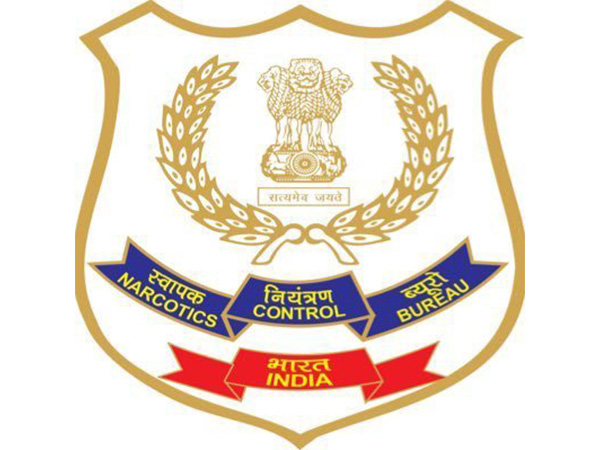NCB cracks down on illegal drug cartels, arrests 8 internationally, seizes crypto wallets and parcels
Drug Seizures & ArrestsPosted by AI on 2025-08-29 16:26:07 | Last Updated by AI on 2025-08-29 18:17:45
Share: Facebook | Twitter | Whatsapp | Linkedin Visits: 0

Recently India's Narcotics Control Bureau (NCB) has taken a strong stand against illegal drug trafficking and trafficking syndicates operating across four continents using encrypted apps, crypto, and B2B platforms. They found links to India, the US, Australia, and Europe, starting with intercepting a car near Mandi House, Delhi, based on a tip-off from local authorities. Further investigations led to uncovering a wider network of traffickers and arresting additional suspects. They've seized crypto wallets and parcels, as well as shutting down any online listings advertising controlled drugs.
The investigation began after the NCB HQ Operations Unit intercepted a car near Mandi House, Delhi, and found 3.7 kg of Tramadol tablets, a controlled medication often misused as a narcotic. Further confession exposed a deeper network that involved an online vendor profile on a major Indian B2B platform, used to ship pharmaceutical pills to clients in the United States, Europe, and Australia.
The syndicate has a call centre in Udupi, employing approximately 10 staff members, while operating a multilayered structure with two distinct modules, orders, and supply, managed by handlers using encrypted messaging platforms like Telegram and payment systems involving cryptocurrency, PayPal, and Western Union.
Their operation spanned internationally across the US, Australia, and Europe, with the United States Drug Enforcement Administration (DEA) arresting a key operative named Joel Hall, a re-shipper based in Alabama, and authorities seizing over 17,000 tablets of controlled medicines from his possession.
In addition, a clandestine pill-manufacturing facility linked to the network was busted in Australia by local law enforcement. This case underlines the growing intersection of digital commerce, encrypted technology, and international logistics in facilitating illicit pharmaceutical trade. It also reinforces the importance of international intelligence-sharing and collaborative enforcement actions.
## Conclusion
India continues to crack down on illegal drug trafficking and operations. International collaboration and surveillance are key in tackling such transnational crimes, and authorities have urged continued support and shared intelligence from citizens as well. As this case unfolds, we can expect more updates from the NCB on any progress and future arrests, as they continue to tackle crime and enforce safety across the country.
Search
Categories
- Sports
- Business
- History
- Politics
- International
- Science & Technology
- Social Issues
- Disaster Management
- Current Affairs
- Education
- Startup Business
- Startup News
- Awards
- Community Services
- Fundraising Events
- Volunteer Services
- Health Initiatives
- Innovations and Initiatives
- In News
- Banners
- Awards
- Partners
- Products
- Press Releases
- News
- Fast Check
- South
- సినిమా
- Gallery
- Sunday Chronicle
- Hyderabad Chronicle
- లైఫ్ స్టైల్
- National
- క్రైం
- ట్రెండింగ్
- జాబ్స్
- అంతర్జాతీయo
- బిజినెస్
- రాజకీయం
- బిజినెస్
- సంపాదకీయం
- నవ్య
- చిత్ర జ్యోతి
- క్రీడలు
- జాతీయం
- తెలంగాణ
- తాజా వార్తలు
- మన పార్టీ
- మన నాయకత్వం
- మన విజయాలు
- డౌన్లోడ్స్
- మీడియా వనరులు
- కార్యకర్తలు
- North East Skill Center News
- Government Schemes
- Entrepreneurship Support
- Employment Opportunities
- Skill Training Programs
- Departments
- Investments
- Initiatives
- Resources
- Telangana IT Parks
- Events & Jobs
- Press Releases
- News
- Airport News
- Newtons Laws of Motion
- Karbonn in Business
- Investments in Karbonn
- Company quarterly sales
- Markets
- Auto News
- Industry
- Money
- Advertisements
- Stock target
- Company Updates
- Stock Market
- Company Sales
- Staffing and HR
- Constituency Assembly
- General News
- Srikalahasti Temple
- Bojjala Sudhir Reddy
- Technology & Innovation
- Sports
- Business
- Products
- Industries
- Services & Trainings
- Tools & Resources
- Technology Integration
- Drug Seizures & Arrests
- Telangana Narcotics
- Law & Enforcement
- Rehabilitation
- Nationwide Drug Policing
- Nigeria Seizures
- Global Operations
- Drug Awareness
- Drug Enforcement Tech
- NCB Drug Seizures
- Judicial Crackdown
- India's Surveillance Tools
- Cross-Border Links
- Women Safety
- Cyber Crimes
- Drug Abuse
- Traffic & Road Safety
- Community Connect
- Public Safety Alerts
- Citizen Assistance
- Nellore City News
- Politics & Administration
- Events & Festivals
- Agriculture & Rural
- Business & Economy
- Health & Wellness
Recent News
- Despite intensive investigations, the source of contraband drugs in Indore remains elusive to the authorities. Yet, as a testament to the city's resilience and commitment to stamping out dangerous illicit substances, another member of the Seema Nath drug gang has been apprehended.
- Multinational Pharma Manager Granted Conditional Bail in Meperedone Case
- Flames of political rivalry or stunt? Indian court acquits 4 in 2017 case
- Smuggling Busters: Telangana Police Crack Down on Gold Smugglers
- Republicans Acquitted of Attempted Murder Charges
- How AI is transforming Indias pharmaceutical industry
- Mahindra University Drug Scandal: Reinforcing Zero Tolerance
- Drug Abuse Awareness Remains Vital: A Call for Action on World Drug Day